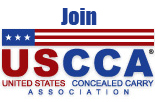U.S. Unveiling New, More Restrictive Nuclear Policy
Tuesday, 06 Apr 2010 08:30 AM Article Font Size
The Obama administration is unveiling a new nuclear weapons policy that seeks to narrow the circumstances under which the United States would use such weapons while preserving long-standing assurances of nuclear protection for allies, U.S. officials said.
It is a delicate balance that the administration will describe in a policy document, called a nuclear posture review, to be released Tuesday following a full year of deliberation led by the Pentagon in consultation with allied governments.
Secretary of Defense Robert Gates, Secretary of State Hillary Rodham Clinton, Secretary of Energy Steven Chu and Joint Chiefs chairman Adm. Mike Mullen planned to unveil the new policy at a noon Pentagon briefing.
The document is expected to include language reducing U.S. reliance on nuclear weapons for its national defense by narrowing potential U.S. nuclear targets. That reflects President Barack Obama's pledge to move toward a nuclear-free world, and could strengthen U.S. arguments that other countries should either reduce stockpiles of nuclear weapons or forgo developing them.
The review of nuclear weapons policy is the first since 2001 and only the third since the end of the Cold War two decades ago.
The White House also planned to urge Russia to begin talks on adopting first-ever limits on shorter-range nuclear weapons, an arena in which Russia holds an advantage, said the officials, who spoke on condition of anonymity because they were not authorized to discuss details of the nuclear policy review prior to its release.
These would be follow-on negotiations to the newly completed "New START" treaty reducing long-range nuclear weapons — to be signed by Obama and Russian President Dmitry Medvedev in Prague on Thursday.
On Tuesday, Foreign Minister Sergey Lavrov said Russia reserves the right to withdraw from the new treaty if it decides a U.S. missile defense shield, now planned for Romania, threatens its security.
He also said Moscow shares Obama's goal of a nuclear-free world, but other nations must join the disarmament process.
The U.S. officials said the administration's new policy would stop short of declaring that the United States would never be the first to launch a nuclear attack, as many arms control advocates had recommended. But it would describe the weapons' purpose as "primarily" or "fundamentally" to deter or respond to a nuclear attack.
The officials said the document would say it is a U.S. goal to move toward a policy in which the "sole purpose" of nuclear weapons is to deter or respond to nuclear attack. That wording would all but rule out the use of such weapons to respond to an attack by conventional, biological or chemical weapons. Previous U.S. policy was more ambiguous.
In an interview with The New York Times on Monday, Obama said his administration was explicitly committing not to use nuclear weapons against non-nuclear states that are in compliance with the Nuclear Non-Proliferation Treaty, even if they attacked the United States with biological or chemical weapons. Those threats, he told the newspaper, could be deterred with "a series of graded options" — a combination of old and newly designed conventional weapons.
The Obama administration plans to urge Russia to return to the bargaining table following Senate ratification of the new START treaty.
The White House hopes to overcome Russia's expressed reluctance to move beyond START, especially if it means cutting Moscow's arsenal of tactical, or short-range, nuclear arms.
These so-called theater nuclear weapons play a key role in Russia's overall defense strategy and are regarded in Moscow as an important bargaining chip on security issues.
The timing of a planned U.S. push for new, broader arms talks with Russia is uncertain. But officials said the proposal would only come after U.S. and Russian legislative approval of the new START pact, which isn't expected until the end of this year.
The Russian parliament is almost certain to sign off on any deal negotiated by the Kremlin, but the U.S. Senate's ratification of the new START treaty is far from a sure thing.
Ellen Tauscher, the undersecretary of state for arms control, told reporters March 29 that the administration has a "big agenda" for the next set of nuclear arms talks, and that it includes limiting short-range weapons.
Obama is hosting dozens of world leaders in a nuclear security summit in Washington next week.
One senior administration official said the U.S. wants another round of talks between the White House and the Kremlin that would include not only short-range weapons but also so-called "non-deployed" nuclear weapons — the thousands of warheads, long-range and short-range, on both sides that are held in reserve and not ready for immediate use.
George Perkovich, a nuclear weapons expert at the Carnegie Endowment for International Peace, said the Russians have a strong incentive to limit reserve weaponry because the U.S. could, in theory, quickly mount its stored warheads back onto missiles.
Russia's struggling military forces would have a harder time preparing their reserve warheads for use in the event of war.
U.S. officials believe talks on reducing stockpiled warheads could persuade Russia to negotiate limits on short-range weapons — a category of arms in which the Russians hold a large numerical advantage.
Reducing the short-range bombs and stored warheads would involve more intrusive inspections than agreed in the treaty Obama and Medvedev will sign this week. But new technologies for verifying and counting warheads could ease concerns on both sides about protecting the secrecy of their weapons designs, the officials said.
These technologies allow inspectors to verify narrow characteristics of warheads without revealing details of their structure.
Tuesday, April 6, 2010
Subscribe to:
Post Comments (Atom)


No comments:
Post a Comment
Note: Only a member of this blog may post a comment.